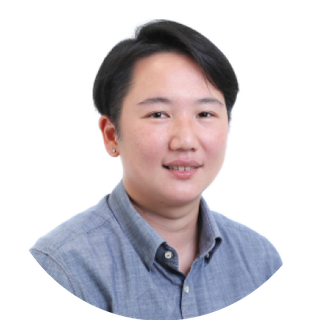Singapore has to adapt to vast changes from Covid-19
Jobs will be radically affected, says DPM Heng; coming election will chart Singapore's future in next 5-10 years

Singapore
SINGAPORE faces an "unprecedented level" of uncertainty today, far more than what the country experienced during the Global Financial Crisis or Asian Financial Crisis, said Deputy Prime Minister Heng Swee Keat on Monday.
He said in an interview with The Straits Times and The Business Times that it is "anybody's guess" as to what the shape of the economic recovery will be like, given that there are very deep cyclical shocks on the demand and supply side, as well as accelerating structural changes.
The Covid-19 pandemic already has and will continue to accelerate a series of structural changes around the world, radically changing the shape of globalisation, trade, and the future of work, he said, adding that Singapore needs to move quickly and embrace the new economic model that is taking shape.
Mr Heng noted that Covid-19 has already created shock waves that will trigger a set of changes that will themselves be built on structural changes that are already happening. These include the areas of technology and innovation, the shape of globalisation, and the future of work.
When globalisation is coupled with digitalisation, it changes the labour market in a fundamentally different way, said Mr Heng.
A NEWSLETTER FOR YOU

SGSME
Get updates on Singapore's SME community, along with profiles, news and tips.
For instance, digitalisation has been especially empowering for people in developing countries, allowing them to leverage digital access to pick up relevant skills on their own.
Armed with this basic education, they are able to make full use of their creativity to complement machines, thus allowing for jobs to be outsourced in ways that were not possible before, said Mr Heng.
"You are going to see a significant reconfiguration of the labour market globally - reshoring of jobs, offshoring of jobs, outsourcing of jobs; the rise of the gig economy, of the freelancers. This will cause significant stressors in many societies."
But even as the gig economy disrupts and causes stress, it is also helping some businesses.
Mr Heng cited the example of a vegetarian food stall owner in Tampines who said he was enjoying better business due to food delivery services, which allowed him to reach a much wider range of customers than before. He also shared how his favourite Peranakan restaurant in Bukit Timah was coping with the ban on dining-in and delivering to as far away as Changi.
On the topic of jobs and retrenchments, Mr Heng said those working in sectors most directly hit by Covid-19 - aviation, tourism, F&B and retail - would be the first to be affected.
Mr Heng had previously said the pandemic is likely to cause the number of unemployed residents in Singapore to exceed 100,000 this year.
"(Those jobs) that involve a degree of high touch will be badly hit by Covid-19. What will be the shape of those jobs in the coming years? We have to start thinking hard about it because I don't think global travel and global tourism will just bounce back," he said.
He added that he is looking forward with "great interest" to see how the opening up of some countries in Europe would change the shift of the pandemic.
"I'm hoping that it goes well because it's a very bold experiment. If it goes well, we will have hope that global aviation and tourism can recover quickly," he said. "But it will be realistic for us to learn to live with Covid-19. I don't think the virus will be eliminated or overcome just like that."
With Singapore heading towards its next general election, which is widely expected to take place soon, Mr Heng said the election will chart Singapore's future for at least the next five to 10 years.
In response to a question on how the global flight to leadership amid the pandemic might translate in terms of a mandate for the ruling People's Action Party, Mr Heng - the party's first assistant secretary-general - said the election is about setting a direction for the country.
And beyond the election itself is the critical task of bringing together everyone in society to cope with this period of massive changes, he added.
"It's not just this one election, but I see significant changes that we need to make, significant challenges that we need to overcome, and significant opportunities, not in the next three to six months but in the next five to 10 years," he said.
"These are changes that will define Singapore in the future. So if Covid-19 is a test of a generation, the next five to 10 years will be a test of how our generation overcomes this test of a generation and emerges stronger."
READ MORE: Firms know rethinking business models needed; government support isn't forever
KEYWORDS IN THIS ARTICLE
BT is now on Telegram!
For daily updates on weekdays and specially selected content for the weekend. Subscribe to t.me/BizTimes
International
Explosions in Iran, US media reports Israeli strikes
US veto sinks Palestinian UN membership bid in Security Council
Pro-China local leader ousted in Solomon Islands election
Japan‘s March inflation slows to 2.6%, eyes on BOJ move
S&P downgrades Israel rating on heightened geopolitical risk
‘We have our jury’: panel selected for Trump criminal trial
